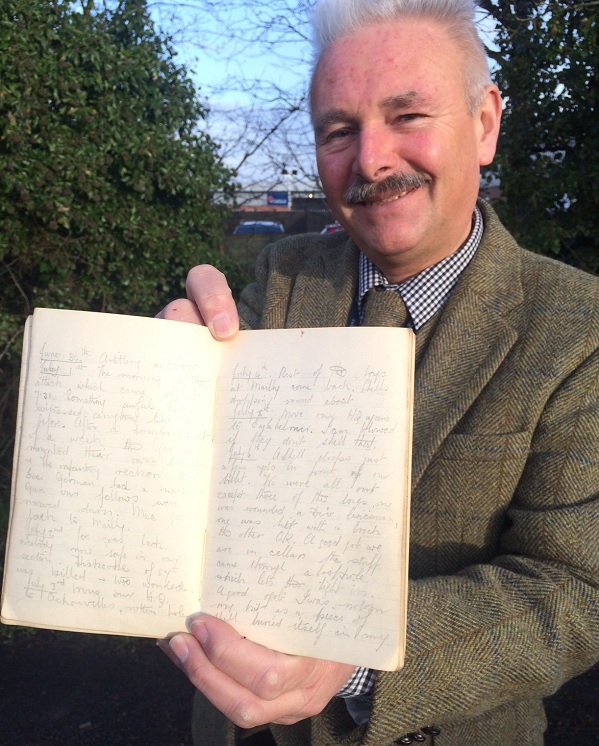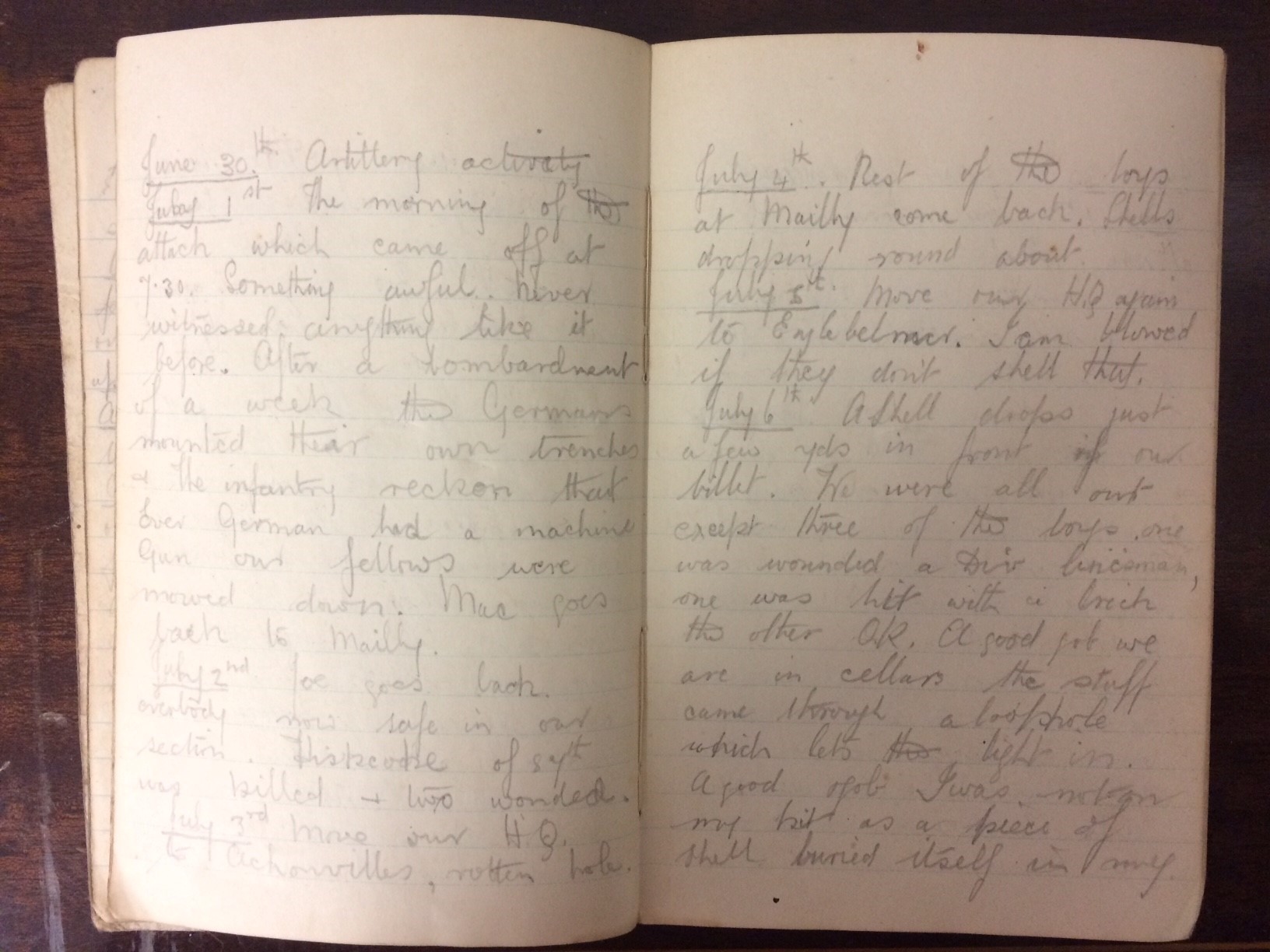First World War diary found in barn
A battered diary written by a soldier during the Battle of the Somme in the First World War has been discovered in a barn in the Midlands.
Written in pencil more than a century ago by Private Arthur Edward Diggens, it includes an entry from the first day of the battle – July 1, 1916.

He wrote, ‘Something awful. Never witnessed anything like it before. After a bombardment of a week the Germans mounted their own trenches and the infantry reckon that every German had a machine gun…’
The first day of the Battle of the Somme, which lasted from July 1 to November 18, 1916, is regarded as the bloodiest in British Army history. Out of 120,000 Allied troops in the initial attack, nearly 20,000 were killed, most in the first hour. One man was killed every 4.4 seconds. Somme casualties went on to top one million, including 300,000 deaths.
The discovery has astonished militaria expert Adrian Stevenson who discovered the diary at a free valuation event at Hansons Auctioneers at Etwall, near Derby. He said: “When I opened it, I was amazed – and I had to flick straight to the July 1 entry.
“The fact that both the diary and the soldier survived is pretty remarkable, given those awful statistics. As a mark of respect to its author, I hope this diary sells for a substantial figure at auction. It will certainly appeal to militaria collectors worldwide.”
The First World War diary is due to be sold on March 20 in a Medals and Militaria sale at Hansons with a guide price of £300-£400.
“Unbelievably, it was discovered with several other unrelated militaria items in a box in a Leicestershire barn,” said Mr Stevenson. “The owner had no idea who any of the items related to but said his mother had been the recipient of old family heirlooms.
“It’s a complete mystery how this Somme diary ended up in the Midlands, particularly as Arthur was born in London. I’m just relieved such an important piece of military history has been found and can now be preserved.”
The small, battered First World War diary, which is 104 years old, bears scuffs and stains on its cover and a word now hardly legible, ‘Army’. The opening page states that the diary was started on February 13, 1916 but ends abruptly on October 11 of that year.
“Because of this we feared Arthur must have been a casualty of the conflict but my research proved otherwise,” said Mr Stevenson.
“Not only did he survive the First World War, he returned to his loved ones in England and became a husband and father.
“I’m always delighted when finds like this come in. They provide us with an opportunity to look back at important moments in history and celebrate the stories of long-forgotten servicemen.”

Arthur was born on August 26, 1895, in St Pancras, London. In 1911, at the age of 16 he was working as an electrician. When the First World War started he signed up to serve with the Royal Engineers, Signals section, serial number 1412. He had the rank of Sapper (Private).
He served in the Gallipoli campaign which took place on the Gallipoli peninsula (Gelibolu in modern Turkey), from February 17, 1915 to January 9, 1916, and at the Somme on the Western Front in France with the 29th Division. At that time, he would have been 20 years old.
His wartime diary reveals extracts of daily life, such as, July 6, 1916, ‘A shell drops just a few yards in front of our billet. We were all out except three of the boys. One was wounded… a good job I was not on my bit as a piece of shell buried itself in my candle. Oh, you lucky devil’.
July 10, 1916: ‘Out on lines’ … July 11, ‘Ditto, everything OK. Except being fed up’. But it wasn’t all doom and gloom. He wrote on July 30, 1916, ‘The town of Ypres has been my godsend’ and on August 11, 1916, ‘Still going OK. Start making a model aeroplane out of the copper dome of St Jacques Church, Ypres. A few curious’.
Then there is the entry from August 26, 1916, ‘Going Ok. Another birthday (his 21st) away from home in France this year’ and on September 11, 1916, ‘Received a letter from Alice I shall never forget’. The last line in his diary is, ‘Well, we are at the Somme front once more’.

Mr Stevenson said: “Arthur was demobbed in 1919 and, thanks to his efforts to serve his country, he was awarded a 1914-15 Star, War Medal and Victory Medal.
“Happily, he went on to marry his wartime sweetheart Alice (nee Phillips) in 1919 and was soon a proud father. Alice gave birth to a son in 1920 – also called Arthur.
“By 1939, the year the Second Wold War broke out, Arthur senior was living in Islington and working as a telephone switch board engineer. Dutiful as ever, he went on to serve with the ARP (Air Raid Precautions) during the 1939-45 conflict.
“Sadly, a Gallipoli diary also penned by Arthur has been lost. He posted it home but it never made it. We also know why his diary ended suddenly. Alice sent him a new address book which he used as a diary from Oct 1916. That, too, has been lost.”


